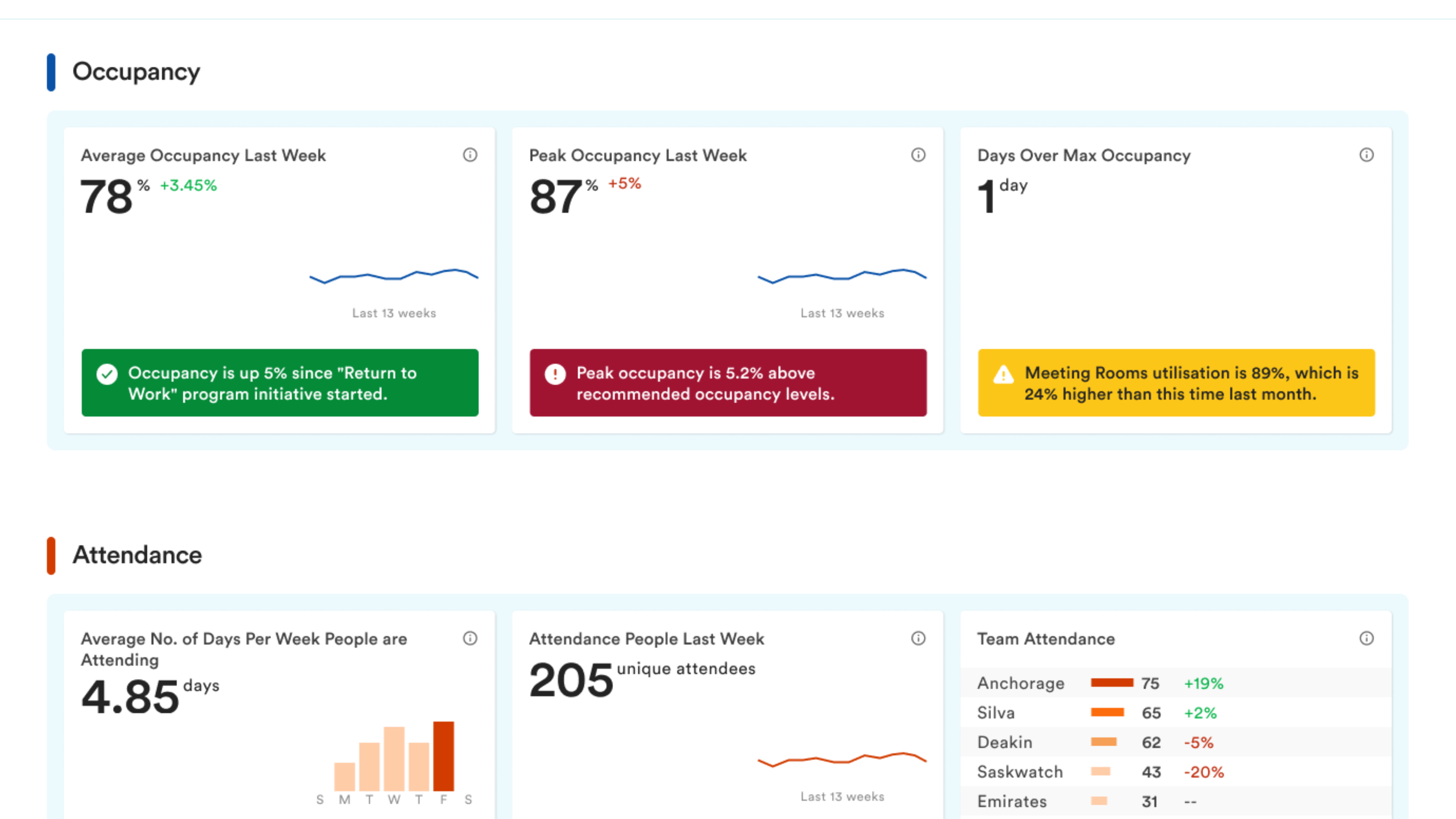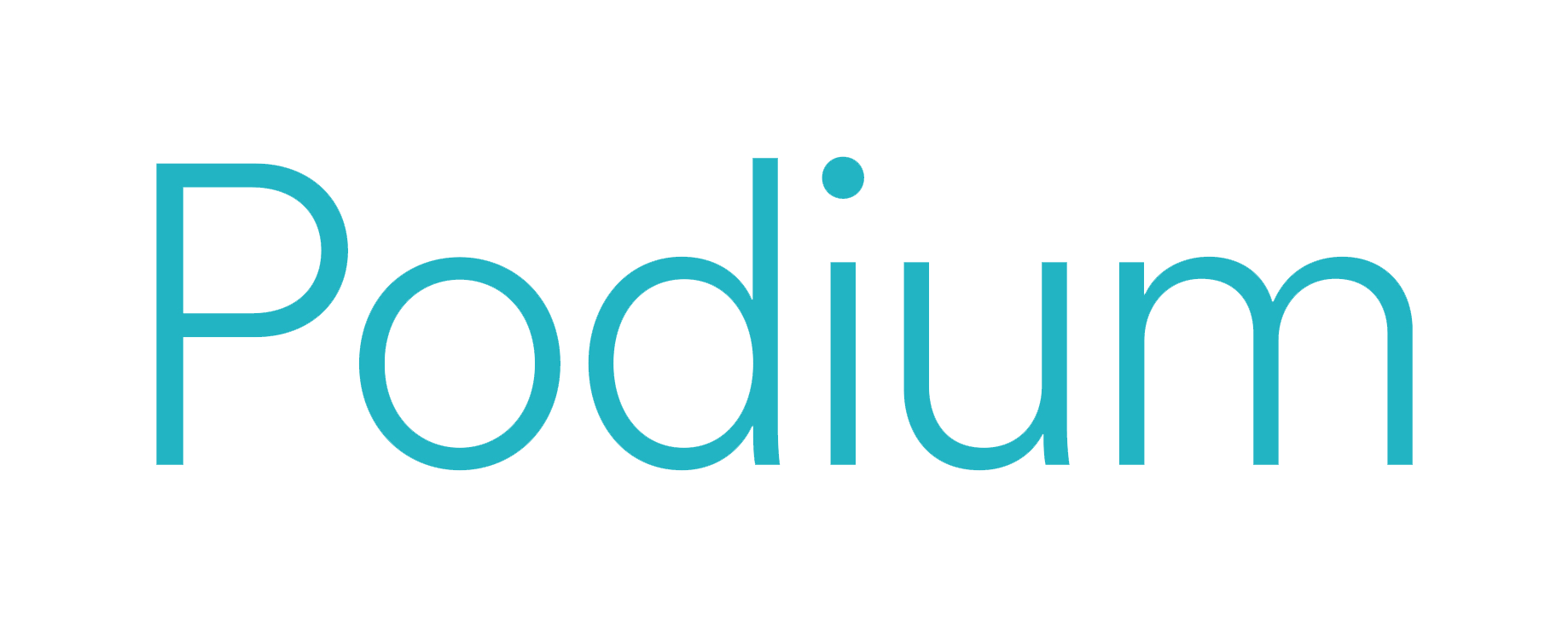
Podium Property Insights: Analytics And Insights For Workplace Managers
- by
- Lendlease
- Podium
As the hybrid working model sees people gradually return to the office, workplace managers must transform physical workspaces to ensure they remain attuned to the changing needs of different teams.
While workplace space utilisation was once merely an exercise in optimisation, the process has been evolving in order to place a greater focus on more people-centric metrics such as employee satisfaction. It is a metric no organisation can afford to ignore, amid changing employee expectations and the increasing struggle to attract and retain the best talent.
Rather than sift through mountains of siloed data when making critical decisions around space design and utilisation, decision makers require holistic analytics and actionable insights. These analytics and insights must draw together a range of metrics, from occupancy and productivity to employee satisfaction, in order to provide a clear picture of the workplace, drive initiatives, underpin goals and measure success.
Traditionally, workplace space utilisation planning has been a very manual, cumbersome and imprecise process. Collecting data required walking the halls with a clipboard, attempting to capture a snapshot of people's locations and activities. Utility consumption was estimated through studying monthly bills, while employee sentiment was tracked at random intervals through tools such as NPS.
All of this rough data was manually entered into complex spreadsheets, in an effort to track workplace initiatives and produce space utilisation forecasts. At the end of the day, after investing all this time and effort, space design decisions still relied as much on estimates and gut feel as they did on hard data. Efforts to take a more systematic approach to space utilisation soon lead to information overload, hampered by fragmented data and systems with limited interoperability – such as Building Management and Workplace systems.
Typical off-the-shelf solutions provide little in the way of forecasting options. The inability to easily draw together space utilisation data and insights from other arms of the business also makes it difficult for people to determine the outcomes and effectiveness of their own specific initiatives on key performance indicators.
Podium Property Insights solves the data collection shortcomings and helps users get more out of the data with guided insights. This includes digitally tracked, real-time data on both space utilisation and employee sentiment, along with other key factors such as a building's health status and sustainability initiatives.
The system intelligently supports 20 metrics across a building portfolio, from employee satisfaction and complaints to space utilisation – drilling down to occupancy and bookings at a floor, room or seat level. It can also consider environmental factors, from air quality and noise pollution to energy usage and waste output. Open integration allows workplaces to extend the system and drive extra value from existing sensors and systems. As a result, Podium Property Insights offers the ability to clearly track workplace initiatives and measure ROI in complex environments.
Users have access to a main hub which not only offers visualisations of data and floor plans, but also tracks targets and benchmarks while flagging areas which require attention. This includes proactive insights which provide actionable suggestions around improving both utilisation and employee sentiment. Graded, colour-coded insights allow users to address small issues before they blow out into major concerns.
Building on this, graphs and other easily-navigated visualisations allow users to undertake deeper analysis. This includes reporting, comparison tools, recommendations,
AI and ML modelling, forecasting and scenario planning.
Correlating building data with employee data provides the clearest understanding of what drives employee sentiment and satisfaction. Employee satisfaction is the hero metric, helping to drive business outcomes in employee productivity, collaboration and retention amid the challenges of hybrid workplaces. Podium Property Insights also allows workplace managers to dig deeper to better-understand how teams utilise their space and interact with others. This allows them to improve a range of other key metrics, with tangible benefits.
For example, two teams with significant space requirements, which are located on the same floor, are likely to come into conflict, even if other areas of the building remain under-utilised. Using workplace insights to understand this conflict allows for data-driven solutions, such as allocating those teams to different floors and pairing them with teams which have less significant space requirements. The result can boost productivity and employee satisfaction across the board without the need to invest in more office space.
Cost optimisation is one clear business benefit. Stronger visibility of the ROI of existing workplace systems and sensors, including Building and Integrated Workplace Management Systems, can reduce workplace system costs by up to 15%, according to Accenture internal research. At the same time, stronger visibility of utility spend and the ability to take action to reduce spend can reduce energy costs by 10-20%.
Safer and healthier buildings – through tracking real-time data analytics, along with predictive and immediate action recommendations – can also reduce employee complaints by up to 30%, according to Harvard's 'The 9 Foundations of a Healthy Building' report.
